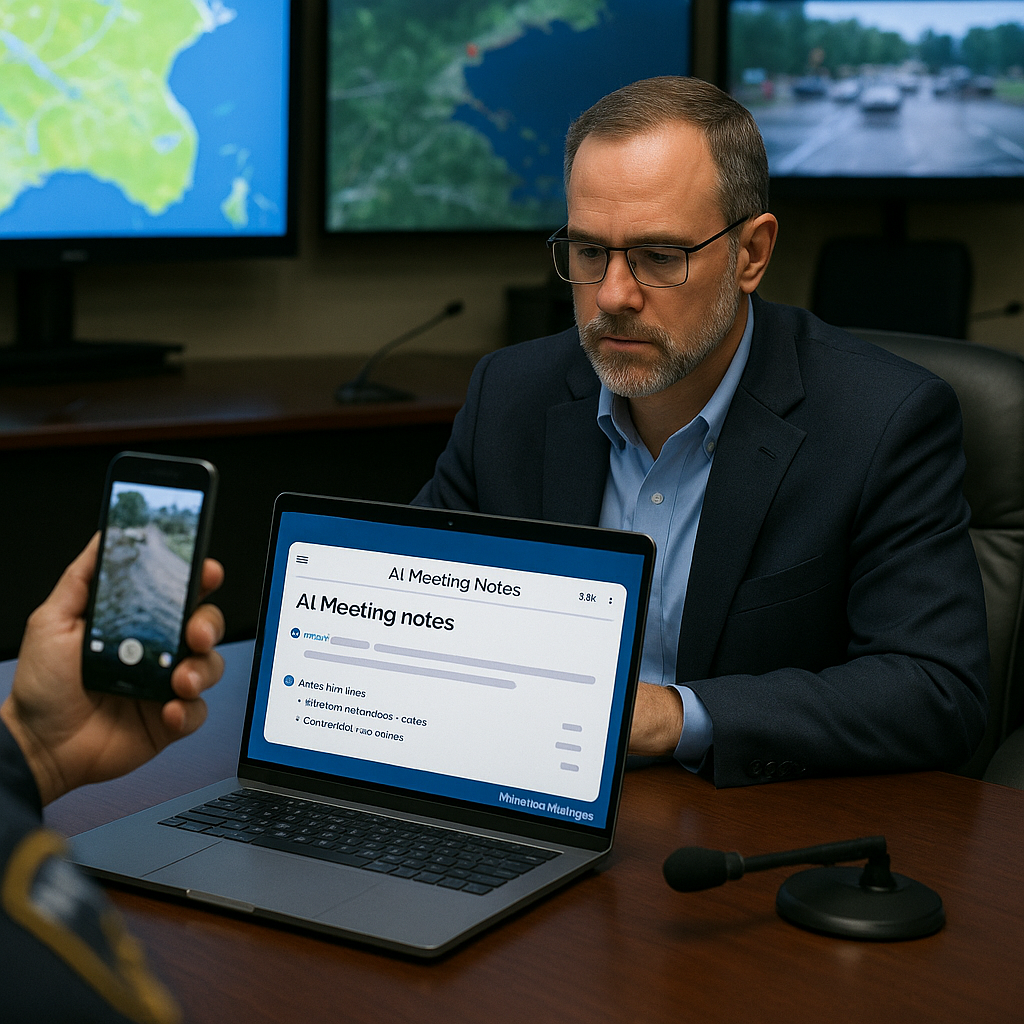
If you’re working in local government and not taking advantage of the latest technology, you’re making your job harder than it needs to be. One tool I recommend every municipal manager “use and abuse” is AI-powered meeting notetakers like Otter.ai. These tools don’t just save time—they let you focus on what really matters, help you document every decision, and ultimately make you a more effective leader.
Where AI Notetaking Really Shines: High-Stakes Meetings
For me, the real home run is during meetings where everything’s on the line—especially emergency management situations. When I’m receiving critical information, directing teams, and allocating resources, I don’t have time to worry about taking perfect notes. AI handles that for me, capturing every detail so I can focus on leading. Later, when I need to justify my actions or request reimbursement, I’ve got a rock-solid transcript and action log—no guesswork, no missing information.
Automated Meeting Notes, Made Simple
These tools integrate seamlessly with Teams, Zoom, or just run quietly on your phone or laptop in person. They transcribe conversations in real time, highlight action items, and deliver a full searchable transcript—so you’re never left scrambling.
Be Present, Not Distracted
This is the magic: you get to actually participate in the meeting. Instead of furiously writing notes, you can engage in honest discussion, ask tough questions, and make good decisions. The AI keeps track of the details for you.
Action Items, Captured Automatically
Tired of meetings where everyone forgets who’s supposed to do what? Let AI handle it. Many platforms automatically identify action items and assign them—keeping your team organized and accountable.
Searchable Transcripts: Your Information Goldmine
When you need to know what was said about a specific issue—like “20th St. bridge”—just search for it. If you’re handling a public records request or prepping for an audit, you don’t need to dig through hours of recordings. The AI can find it instantly and show you who said what.
Speaker Identification: Next-Level Accuracy
Platforms like Otter.ai can even learn who’s speaking and tag each voice automatically. Want to know every time Mayor Smith talked about water rates? The AI can show you. Need to know who made a motion, seconded, or voted? It’s all attributed and organized for you.
A Word on Compliance: Always Check Your Laws
Don’t forget: Before recording, make sure you’re complying with your state and local laws about consent for recording conversations.
Bottom Line: Work Smarter, Not Harder
The technology is here—use it, and don’t feel bad about it. AI notetakers aren’t just about convenience; they’re about working smarter, improving accuracy, and protecting yourself and your municipality. The more you use and rely on technology like this, the more efficient, transparent, and accountable your operations will be.
Municipal managers, there’s no prize for doing things the hard way. Use and abuse every tool that makes your life easier. Your future self will thank you.
